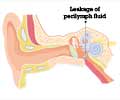Researchers at the German Naval Institute have found that scuba divers do not have an increased decline in lung function, which is contrary to some reports.
The study was conducted on 468 military scuba divers in addition to a comparison 'control' group of 122 military submariners, all of whom were men. The results of the research have been published in the July 2006 issue of the Journal Chest.The research team measured the participants' decline over time in lung performance-measured as forced expiratory volume 1 (FEV1) or the maximum volume of air expired in 1 second. The study was conducted by Dr. Kay Tetzlaff and colleagues, from the University of Tuebingen, in all of the participants for at least three occasions over a period of at least 1 year. The average follow-up was 5 years.
It was observed that the lung function of divers and controls was greater than the expected norm at the start of the study. During the study period, no significant difference in the decline of FEV1 was observed between divers and controls.
However 43% of divers and 33% of controls reported a history of smoking, and researchers found that FEV1 decline was significantly more rapid in smokers than in non-smokers.
This decline was greater in divers and controls with above-average FEV1 to begin with, and in those who were above the average age of the group.
In conclusion Tezlaff and team write that in the present study the most rapid decline in FEV1 was found in smoking divers with a 'baseline FEV1 above average' and that "in healthy males with normal lung function and an uneventful diving history, there are no long-term deleterious respiratory effects. This may be reassuring for millions of recreational divers worldwide."
Advertisement








